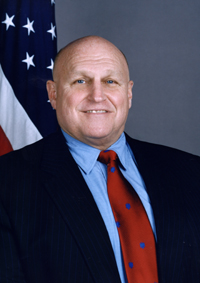This article has multiple issues. Please help improve it or discuss these issues on the talk page . (Learn how and when to remove these template messages)
|
The term covert agent can have many meanings, depending on context.
This article has multiple issues. Please help improve it or discuss these issues on the talk page . (Learn how and when to remove these template messages)
|
The term covert agent can have many meanings, depending on context.
As it is used in the United States Intelligence Community, it is legally defined in 50 USCA §426.
The definition is subject to judicial interpretation, but a reading of the plain language of that statute reveals that a covert agent can be an employee of the US intelligence agencies or a private citizen working on behalf of that community.
The term covert agent means:
The law against unmasking the identities of U.S. spies says a "covert agent" must have been on an overseas assignment "within the last five years." [2]
The law says that if someone reveals the identity of a covert agent to a third party, "knowing that the United States is taking affirmative measures to conceal such covert agent's intelligence relationship to the United States", can get up to 10 years in prison. If this third party then tells anyone else, they can get no more than 5 years in prison.
In the 1960s and 1970s, anti-CIA activists occasionally revealed long lists of overseas intelligence agents to sabotage their activities.[ citation needed ]
In the first decade of the 21st century, a controversy arose in which the White House itself revealed an agent's identity. In that case I. Lewis "Scooter" Libby was found guilty of perjury and obstruction of justice. A court filing by Special Counsel Patrick Fitzgerald during his sentencing hearing asserted that Valerie Plame was indeed a covert agent at the time. [3]

Lawrence Ari Fleischer is an American media consultant and political aide who served as the 23rd White House Press Secretary, for President George W. Bush, from January 2001 to July 2003.

Classified information is material that a government body deems to be sensitive information that must be protected. Access is restricted by law or regulation to particular groups of people with the necessary security clearance and need to know. Mishandling of the material can incur criminal penalties.

Valerie Elise Plame is an American writer, spy, novelist, and former Central Intelligence Agency (CIA) officer. As the subject of the 2003 Plame affair, also known as the CIA leak scandal, Plame's identity as a CIA officer was leaked to and subsequently published by Robert Novak of The Washington Post. She described this period and the media firestorm that ensued as "mortifying, and I think I was in shock for a couple years".
Joseph Charles Wilson IV was an American diplomat who was best known for his 2002 trip to Niger to investigate allegations that Saddam Hussein was attempting to purchase yellowcake uranium; his New York Times op-ed piece, "What I Didn't Find in Africa"; and the subsequent leaking by the Bush/Cheney administration of information pertaining to the identity of his wife Valerie Plame as a CIA officer. He also served as the CEO of a consulting firm he founded, JC Wilson International Ventures, and as the vice chairman of Jarch Capital, LLC.
A covert operation or undercover operation is a military or police operation involving a covert agent or troops acting under an assumed cover to conceal the identity of the party responsible.
Brewster Jennings & Associates was a front company set up in 1994 by the Central Intelligence Agency (CIA) as a cover for its officers. The most famous is Valerie Plame, a "covert employee of the CIA" whose then-classified status was published in a syndicated newspaper column by Robert Novak on July 14, 2003. Novak later said that his initial primary source was then-United States Deputy Secretary of State (2001–2005) Richard Armitage, though Armitage disagreed with Novak as to the extent of his role.

David Corn is an American political journalist and author. He is the Washington, D.C. bureau chief for Mother Jones and is best known as a cable television commentator. Corn worked at The Nation from 1987 to 2007, where he served as Washington editor.

The Intelligence Identities Protection Act of 1982 is a United States federal law that makes it a federal crime for those with access to classified information, or those who systematically seek to identify and expose covert agents and have reason to believe that it will harm the foreign intelligence activities of the U.S., to intentionally reveal the identity of an agent whom one knows to be in or recently in certain covert roles with a U.S. intelligence agency, unless the United States has publicly acknowledged or revealed the relationship.
The Plame affair erupted in July 2003, when journalist Robert Novak revealed that Valerie Plame worked as covert employee of the Central Intelligence Agency, although the seeds of the scandal had been laid during 2001 and 2002 as the Bush administration investigated allegations that Iraq had purchased Nigerien uranium.
The Plame affair was a political scandal that revolved around journalist Robert Novak's public identification of Valerie Plame as a covert Central Intelligence Agency officer in 2003.
The CIA leak grand jury investigation was a federal inquiry "into the alleged unauthorized disclosure of a Central Intelligence Agency (CIA) employee's identity", a possible violation of criminal statutes, including the Intelligence Identities Protection Act of 1982, and Title 18, United States Code, Section 793.

United States v. Libby was the federal trial of I. Lewis "Scooter" Libby, a former high-ranking official in the George W. Bush administration, for interfering with special prosecutor Patrick Fitzgerald's criminal investigation of the Plame affair.
Mary O'Neil McCarthy is a former United States Central Intelligence Agency (CIA) employee who last worked in the Office of the Inspector General. In her career, she was an intelligence analyst and national intelligence officer for warning.
The Plame affair was a dispute stemming from allegations that one or more White House officials revealed Central Intelligence Agency (CIA) agent Valerie Plame Wilson's undercover status. An investigation, led by special counsel Patrick Fitzgerald, was started, concerning the possibility that one or more crimes may have been committed. The initial focus was on Scooter Libby; however, he was not the primary source of the leak.

Fair Game: My Life as a Spy, My Betrayal by the White House is a memoir by Valerie Plame Wilson. Wilson is the former covert CIA officer whose then-classified non-official cover (NOC) identity as "Valerie Plame" was leaked to the press in July 2003, after her husband, former Ambassador Joseph C. Wilson, IV, had criticized the George W. Bush administration's rationale for the Iraq War. The outing made her the center of the American political scandal known as the Plame affair. Her public outing led to her decision to resign from the CIA in December 2005, when she attempted to retire early at the age of 42. Being told that she could not collect her pension until the age of 56, she determined to write this book both as a means of telling her own story in her own words and as a means of earning income to replace her deferred retirement annuity. She encountered resistance from the CIA in the course of chronicling her work with the organization.

John Chris Kiriakou is an American author, journalist and former intelligence officer. Kiriakou is a columnist with Reader Supported News and co-host of Political Misfits on Sputnik Radio.

Richard Lee Armitage is an American former diplomat and government official. A graduate of the United States Naval Academy, Armitage served as a U.S. Navy officer in three combat tours of duty in the Vietnam War as a riverine warfare advisor. After leaving active duty, he served in a number of civil-service roles under Republican administrations. He worked as an aide to Senator Bob Dole before serving in various posts in the Defense Department and State Department.
The Central Intelligence Agency (CIA), a United States intelligence agency that "provides objective intelligence on foreign countries", also informally referred to as the Agency. The CIA is part of the United States Intelligence Community, is organized into numerus divisions. The divisions include directors, deputy directors, and offices. The CIA board is made up of five distinct entitles called Directorates. The CIA is overseen by the Director of Central Intelligence. Under the Director of Central Intelligence is the Deputy Director of Central Intelligence. Under this the CIA is divided into four directorates. These directorates are as follows:
The Sharon Scranage espionage scandal involved the passing of classified information from Sharon Scranage, a clerk with the Central Intelligence Agency, to Michael Soussoudis, an intelligence officer with the Ghanaian Provisional National Defence Council.